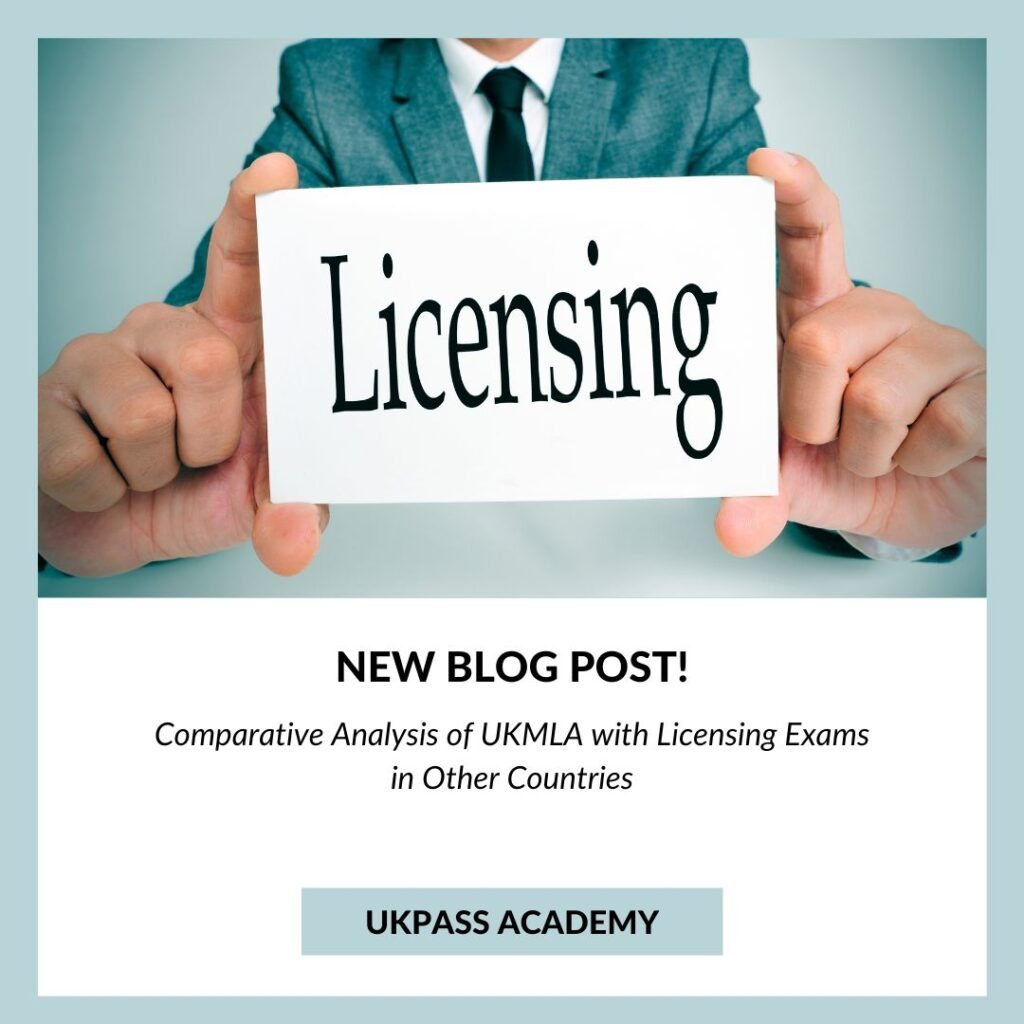In the rapidly evolving landscape of global healthcare, medical licensure exams play a crucial role in ensuring the competence and proficiency of healthcare professionals. Among these exams, the UK Medical Licensing Assessment (UKMLA) stands as a benchmark for medical graduates seeking licensure in the United Kingdom. However, the UKMLA is not the only licensing exam in the world. Many countries have their own assessments, such as the United States Medical Licensing Examination (USMLE), the Medical Council of Canada Qualifying Examination (MCCQE), and the Australian Medical Council (AMC) exam. Understanding the similarities and differences between these exams is essential for medical graduates worldwide. This article provides a comprehensive comparative analysis of the UKMLA with licensing exams in other countries, with a focus on the PLAB 2 course for international medical graduates (IMGs) aiming to practice in the UK.
UKMLA: Structure and Components
The UKMLA is a comprehensive assessment consisting of both a knowledge-based and clinical skills component. The knowledge-based exam evaluates candidates’ understanding of medical concepts, while the clinical skills assessment assesses their ability to apply these concepts in practical clinical scenarios. The UKMLA aims to ensure that licensed practitioners meet high standards of proficiency and professionalism, essential for providing quality patient care in the UK.
Licensing Exams in Selected Countries
In contrast to the UKMLA, other countries have their own licensing exams tailored to their healthcare systems and medical education curricula. For instance, the USMLE in the United States comprises three steps, including a comprehensive examination of medical knowledge and clinical skills. Similarly, the MCCQE in Canada assesses candidates’ readiness to enter supervised medical practice, focusing on clinical decision-making and patient management. Meanwhile, the AMC exam in Australia evaluates candidates’ clinical competence and professionalism, with a focus on Australian medical practice standards.
Standardization and Harmonization Efforts
Efforts to standardize and harmonize medical licensure exams have gained momentum in recent years. Organizations such as the World Federation for Medical Education (WFME) advocate for the alignment of medical education and assessment standards worldwide. Collaborative initiatives between countries aim to facilitate the recognition of medical qualifications and promote global mobility for healthcare professionals. The PLAB 2 course, specifically designed for IMGs, serves as a preparatory program to familiarize candidates with the UK healthcare system and assessment requirements.
Comparative Assessment Methods
While the UKMLA and other licensing exams share similar objectives, the assessment methods may vary. For example, the USMLE incorporates computer-based multiple-choice questions (MCQs) and clinical skills assessments, whereas the MCCQE integrates written and objective structured clinical examinations (OSCEs). The AMC exam in Australia utilizes clinical examinations and workplace-based assessments to evaluate candidates’ clinical competence. Despite these differences, the underlying principles of assessing medical competency remain consistent across exams.
Impacts on Medical Education and Practice
Licensing exams exert significant influence on medical education curricula and training programs. They shape the content and structure of medical education, ensuring that graduates are equipped with the necessary knowledge and skills to meet licensure requirements. Moreover, licensing exams set standards for clinical practice and patient care, driving continuous improvement in healthcare delivery. The PLAB 2 course, through its focus on clinical skills and communication, prepares IMGs for the challenges of practicing medicine in the UK.
Challenges and Limitations
Despite their benefits, licensing exams face challenges and limitations. IMGs, in particular, may encounter barriers related to language proficiency, cultural differences, and access to preparatory resources. Standardizing exams across diverse healthcare systems poses logistical and administrative challenges. Moreover, variations in exam content and format may affect the comparability of exam scores. Addressing these challenges requires collaborative efforts and ongoing refinement of assessment methodologies.
Future Directions and Recommendations
Looking ahead, there is a need for continued collaboration and innovation in medical licensure assessment. Enhancing the comparability and standardization of exams will promote fairness and equity in licensure processes. Providing support and resources for IMGs, such as the PLAB 2 course, will facilitate their integration into the UK healthcare system. Embracing technology and alternative assessment methods can improve the reliability and validity of exams. Ultimately, ensuring the quality and competence of healthcare professionals is paramount for safeguarding patient safety and quality of care.
Conclusion
In conclusion, the comparative analysis of UKMLA with licensing exams in other countries highlights the diversity and complexity of medical licensure assessment worldwide. While each exam has its unique features, they share common goals of assessing medical competency and ensuring patient safety. The PLAB 2 course serves as a valuable resource for IMGs seeking licensure in the UK, providing them with essential skills and knowledge to succeed in their medical careers. By understanding the similarities and differences between licensing exams, we can foster collaboration and innovation in medical education and assessment, ultimately benefiting healthcare systems and patients globally.

